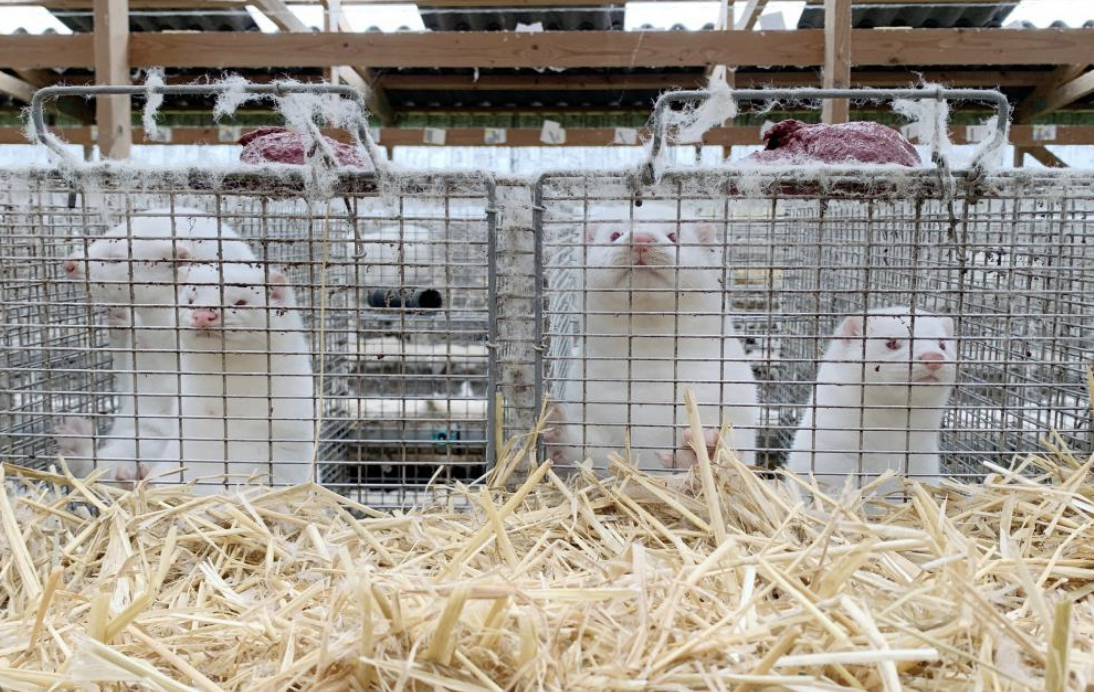The Province is beginning a process to phase out B.C.’s mink-farming industry due to ongoing public-health risks associated with COVID-19.
“This decision follows the recommendations of public health officials and infectious disease experts about managing the threat of the virus for workers at the farms and the broader public,” said Lana Popham, Minister of Agriculture, Food and Fisheries. “Our government will work with affected farmers and workers to help them pursue other farming, business or job opportunities that support their families.”
The proposed phase out follows the conditions of the provincial health officer’s order and includes:
- a permanent ban on breeding mink;
- a permanent ban on live mink on farms by April 2023; and
- all operations ceasing completely, with all pelts sold, by 2025.
The decision follows data from the BC Centre for Disease Control, which identified the potential for the SARS-CoV-2 virus to mutate in mink and be passed back to people, along with additional concerns that mutations could have an impact on vaccine effectiveness.
In July 2021, after three of the nine B.C. mink farms had mink and two farms had workers test positive for SARS-CoV-2 during the previous months, the provincial health officer placed a moratorium on any new mink farms in B.C. and capped the number of animals (restricting the acquisition of additional mink) at existing numbers.
After further outreach and discussion with public health officials, animal health experts and mink producers about managing the threat of the virus, public health officials expressed concerns about allowing the farms to continue breeding, including:
- ongoing persistence of infected mink and workers at mink farms contracting SARS-CoV-2 from mink and transmitting on to broader human populations;
- the presence of the highly transmissible Delta variant and the threat of it being introduced in mink farms, even from vaccinated people;
- potential transmission of SARS-CoV-2 from escaped mink to wild animals, which could also pose a risk to public health;
- subsequent mutations of SARS-CoV-2 strains may lead to variants that can spread more easily or could undermine the effectiveness of the COVID-19 vaccination program in British Columbia; and
- challenges with maintaining strict biosecurity measures and monitoring programs over the longer term.
“Public health has been monitoring and managing outbreaks related to mink farming along with the Ministry of Agriculture and WorkSafeBC, but as this remains an ongoing public health issue, we believe the risk is too great for operations to continue as they were,” said Dr. Bonnie Henry, provincial health officer. “Public health supports government’s decision to take this action at this time for the safety of the broader population.”
The transition period allows the nine operating mink farms in B.C. time to plan for the closure of their farms. During this time, Fraser Health, WorkSafeBC and the Province will continue to ensure biosecurity measures are in place to protect workers and families on the farms, as well as to make sure each farm is taking all necessary precautions to reduce the risk of spreading SARS-CoV-2 through human-to-animal or animal-to-human transmission.
The B.C. government will work with farmers and workers to support them in transitioning to new agricultural jobs or to other trades or careers. The farmers will also be eligible for benefits through existing government-funded income-protection programs to assist them through the transition.


